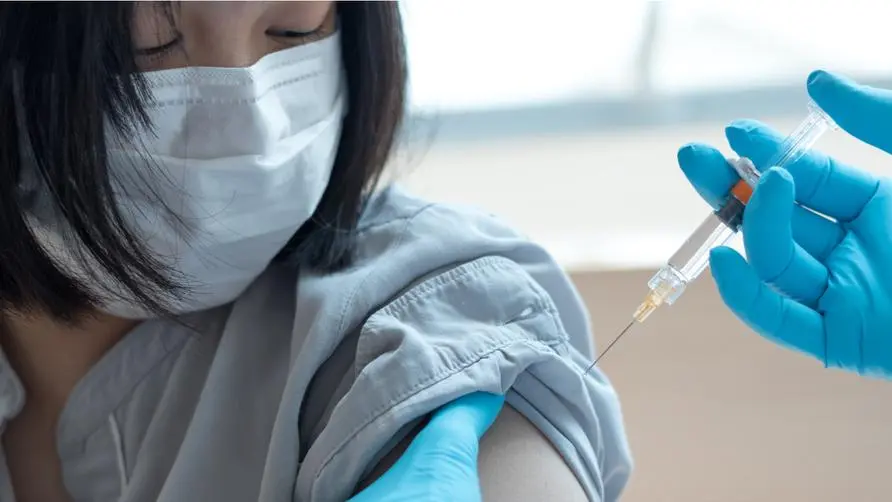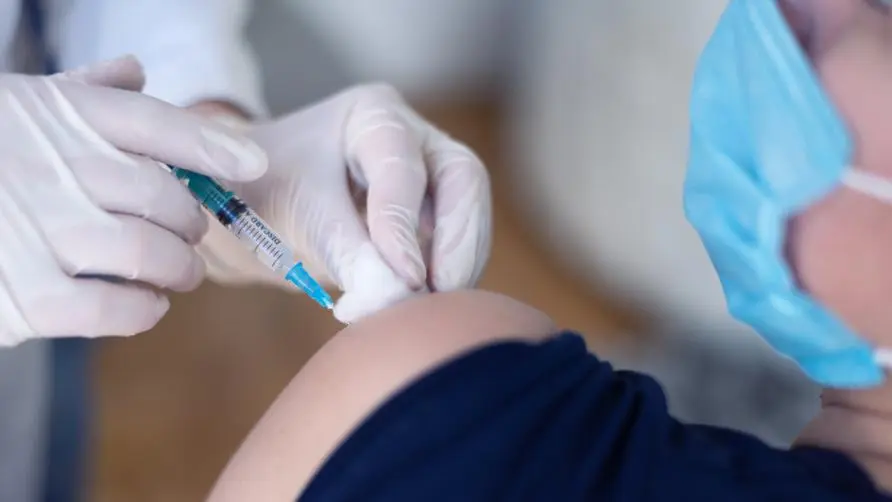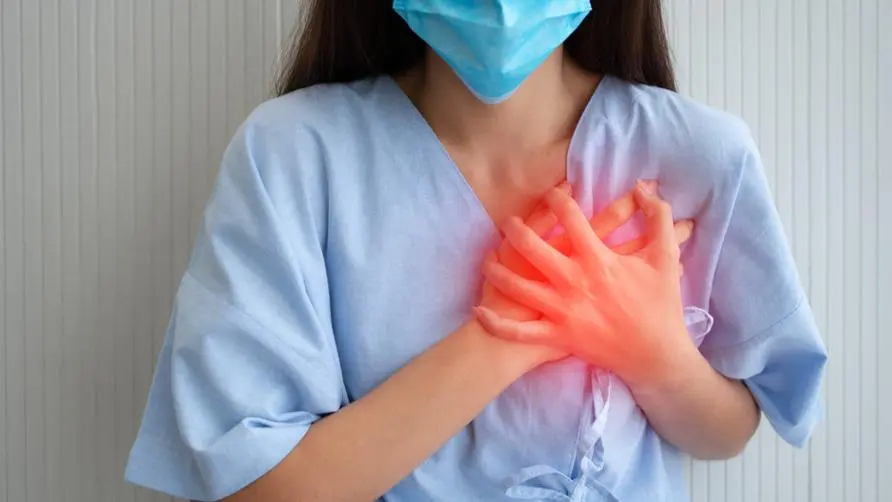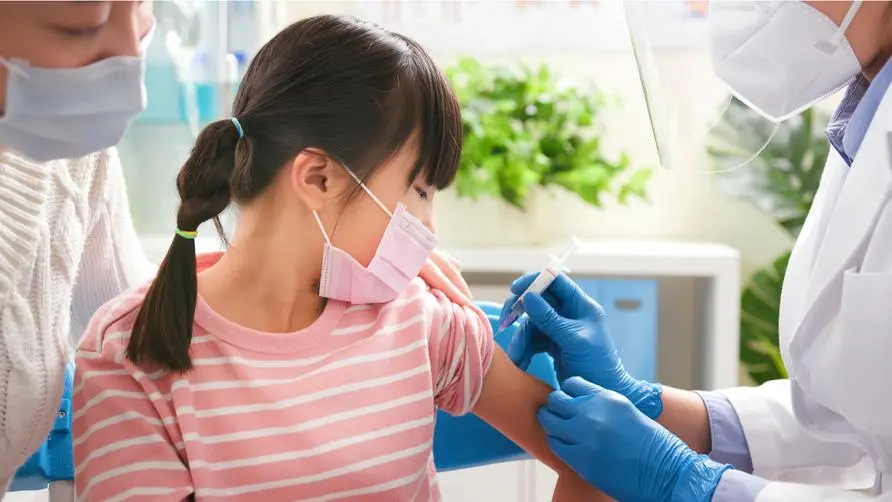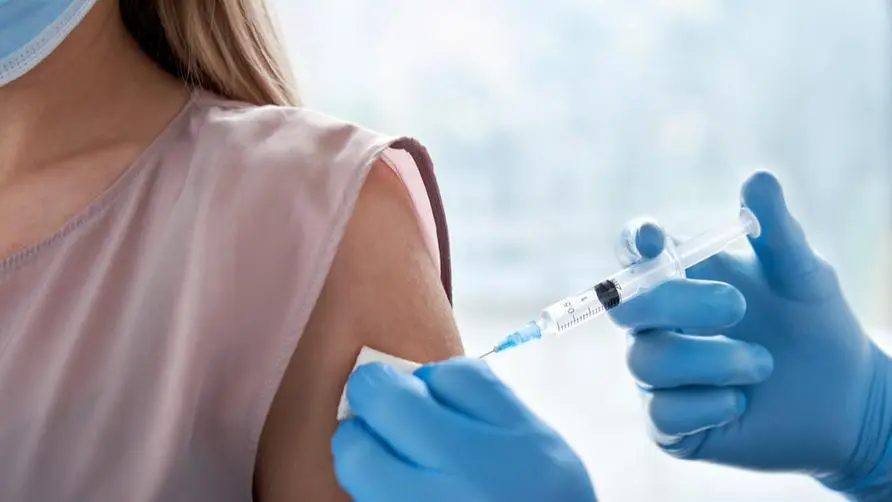If you are worried about blood clots after getting the COVID-19 vaccine, can you take aspirin first? Do I need a health check-up before getting vaccinated?
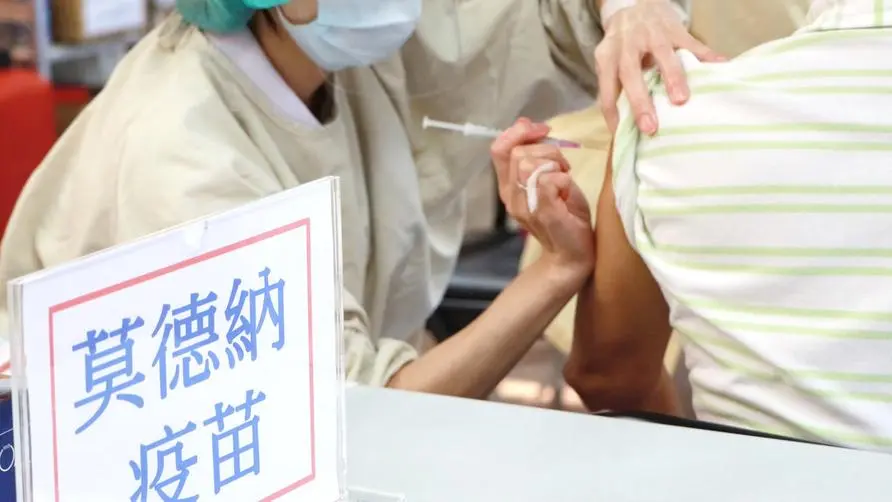
What are the side effects of the COVID-19 vaccine? Which symptoms are most common?
Taiwan’s COVID-19 vaccines are gradually arriving, and vaccination coverage is expected to gradually increase, but many people are still worried that vaccination may have unknown side effects. In an exclusive interview with “healthorn”, Dr. Weng Zimin from the Department of Family Medicine of Far Eastern Memorial Hospital pointed out that there are currently three new coronavirus vaccines in Taiwan: the AZ vaccine with adenovirus vector, the Moderna and BNT vaccines with mRNA, and the high-end vaccine with protein subunits. There is little difference in the main side effects, but if the symptoms last for more than 2-3 days, it is recommended to seek medical examination in time.
Dr. Weng Zimin explained that common side effects after COVID-19 vaccination include pain at the injection site, fatigue, mild fever, etc., with a common incidence rate between 50% and 90%. However, after vaccination with AZ vaccine, a very small number of people may develop “thrombosis combined with low platelet syndrome”. The mRNA vaccine may have specific rare side effects of “myocarditis” and “pericarditis”. However, in terms of the pros and cons of preventing infection and severe disease, the benefits of vaccination still far outweigh the risks of rare side effects.
What are the side effects and adverse reactions? Will taking BNT definitely cause myocarditis?
Dr. Weng Zimin explained that the so-called “side effects” are relative to the “main effects” and refer to other reactions beyond the expected effects of medication or vaccination. For example, anti-allergic drugs may cause drowsiness as a side effect; soreness, swelling, and fever after vaccination. Most of the side effects are predictable and can be significantly improved after stopping the medication.
As for “adverse reactions”, they come from “adverse events”. Dr. Weng Zimin explained that any reaction after vaccination is an adverse event until the causal relationship is confirmed. Adverse reactions will be included only if they are confirmed to be causally related to vaccines or drugs after expert research and identification. The severity of adverse reactions may vary significantly, and most will disappear after discontinuation of medication. What needs to be noted is that “serious adverse reactions” are usually unpredictable and may even require hospitalization when they occur. Therefore, you must pay attention to your physical condition after receiving the vaccine.
Dr. Weng Zimin said that the AZ vaccine has included “thrombosis combined with hypoplatelet syndrome” as an extremely rare side effect, while the causal relationship between myocarditis and pericarditis after mRNA vaccination still needs to be further established. At present, it is indeed found that the proportion of related diseases in certain groups has increased. However, doctors remind that myocarditis and pericarditis will not necessarily occur after taking the mRNA vaccine. If you have any doubts about taking the vaccine, you should first consult your family medicine or infectious disease physician.
Who should see a doctor before getting vaccinated?
Should adults undergo a general health check before being vaccinated? Dr. Weng Zimin pointed out that it is not recommended to undergo a health examination before vaccination. Adults in general should understand their physical condition on a daily basis, or use the Taiwan Health Promotion Administration to subsidize regular health checkups for those over 40 years old. Doctors remind that poor control of chronic diseases is a relative contraindication to vaccination. If you do not have regular check-ups, it is easy to overlook your potential chronic disease problems.
For example, Dr. Weng Zimin said that if the control of diabetes is unstable, the blood draw values exceed the standard for too many items, and medications need to be adjusted in the near future, you should first discuss with the attending physician whether vaccination is suitable. In addition, if you have a history of blood clots combined with low platelets, you should consult the hematology department before receiving the vaccine. People who have had severe allergies such as anaphylactic shock to vaccines or imaging agents may be allergic to specific vaccine components and should consult a specialist before vaccination.
Can I take aspirin first if I am afraid that the vaccine will cause blood clots?
Many people are worried whether taking the AZ vaccine will increase blood clot problems and cardiovascular risks? Dr. Weng Zimin explained that the mechanism of thrombosis caused by vaccines is different from that of general thrombosis. Patients who have had stroke, myocardial infarction, or peripheral arterial occlusive disease can all receive the COVID-19 vaccine. In addition, taking aspirin or anticoagulants is not a contraindication to the COVID-19 vaccine.
Doctors remind that drugs such as aspirin and anticoagulants have no preventive or therapeutic effect on the thrombosis mechanism caused by vaccines. Therefore, it is not recommended to take aspirin before vaccination. If there is no initial prevention or secondary prevention, Prophylaxis is required, as taking such drugs may increase the risk of bleeding.
What physical conditions should I pay attention to before and after receiving the COVID-19 vaccine?
How to tell if the physical discomfort after vaccination is a side effect? Dr. Weng Zimin suggested that it is difficult for ordinary people to identify the cause of discomfort and they should first understand which symptoms are normal side effects of vaccines. Doctors remind that most fever, general fatigue, aches and other symptoms similar to a severe cold after vaccination will naturally resolve within 2-3 days. If the symptoms persist for more than 2 days, it is recommended to seek medical attention to check whether there are other problems.
Dr. Weng Zimin said that it is recommended to get enough sleep before vaccination to maintain normal immunity. Remember to drink enough water before and after vaccination. After vaccination, maintain a normal routine, and there are no special taboos in exercise and diet. Try not to arrange strenuous activities and observe your physical condition within 1-2 days. In addition, adolescents who have received the BNT vaccine should pay attention to whether they have chest tightness, chest pain, shortness of breath, fever, or general fatigue within 2 weeks. If they feel uncomfortable, seek medical examination as soon as possible.
It is recommended to administer the COVID-19, influenza and pneumonia vaccines 7 days apart
The peak period of influenza will enter after October. Dr. Weng Zimin explained that Streptococcus pneumoniae and influenza vaccines can be vaccinated at the same time, but it is recommended to be separated from the COVID-19 vaccine by more than 7 days to help clarify the source of adverse reactions. It is recommended that people get the COVID-19 vaccine first if they are in line. Groups with chronic diseases, high blood pressure, cardiovascular problems, low immunity, chronic kidney disease, and those over 65 years old have a higher chance of severe pneumonia infection. It is recommended to consider the pneumococcal vaccine.
Dr. Weng Zimin reminded that currently only pregnant women are recommended to receive the mRNA vaccine, and adolescents are recommended to receive the BNT vaccine. Other groups do not need to choose specific types and brands of new coronavirus vaccines. If the public has any doubts about receiving the COVID-19 vaccine and other vaccines, they can first go to the home medical clinic to consult a doctor.
